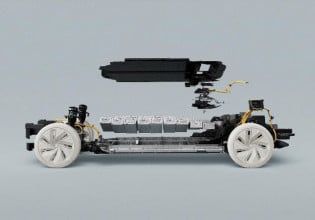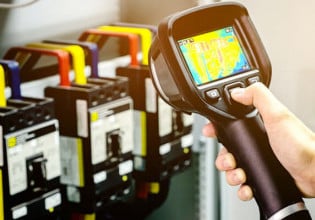Pentadyne Announces CE Marking for its VSS + DC Flywheel-based Clean Energy Storage Systems
Pentadyne Power Corp. announced that its new second-generation VSS+DC flywheel-based clean energy storage systems have earned CE marking. CE marking on a product is a manufacturer's declaration that the product complies with the essential requirements of the relevant European health, safety and environmental protection legislation.
Pentadyne's VSS+DC flywheel clean energy storage systems meet all the applicable requirements of the: "Low Voltage Directive" 73/23/EEC and its amendments by the directive 93/68/EEC; "Machinery Directive" 98/037/EEC and its amendments by the directive 98/79/EEC; IEC/EN 60439-1:1999 "Low-voltage switchgear and control gear assemblies Part 1: Type-tested and partially type-tested assemblies"; IEC/EN 60204-1:1997 "Safety of machinery – Electrical equipment of machines Part 1: General requirements"; EN 1127-1:1997 "Explosive atmospheres: Explosion prevention and protection Part 1: Basic concepts and methodology" Machinery Directive Annex 1 "Essential Health and Safety Requirements Relating to the Design and Construction of Machinery and Safety Components"; and "Electromagnetic Compatibility (EMC) Directive" 89/336/EEC and its amendments by the directives 92/31/EEC and 93/68/EEC.
"CE product marking is critical in the foreign marketplaces served by our OEM partner Socomec Sicon," said Pentadyne President & CEO Mark McGough. "It ensures unimpeded sales and shipments of our product within the European Free Trade Association and the European Union, a total of more than two dozen nations."
Flywheel systems supplement or replace hazardous lead-acid battery arrays used with uninterruptible power supply (UPS) systems. Chemical battery banks require extensive, costly and lengthy permitting processes due to their corrosive materials, fire hazards, toxic fluids and explosive gas emissions. Pentadyne claims that its flywheel power system improves UPS reliability by completely replacing or greatly extending the life of lead-acid batteries commonly used in most UPS configurations. In comparison to batteries, the VSS+DC improves UPS reliability while eliminating costly ventilation and cooling requirements as well as greatly reducing lifecycle cost and virtually eliminating maintenance needs. With a much smaller footprint than an equivalently sized battery system, the VSS+DC is intended to save valuable floor space in the data center leading to higher computing density.






